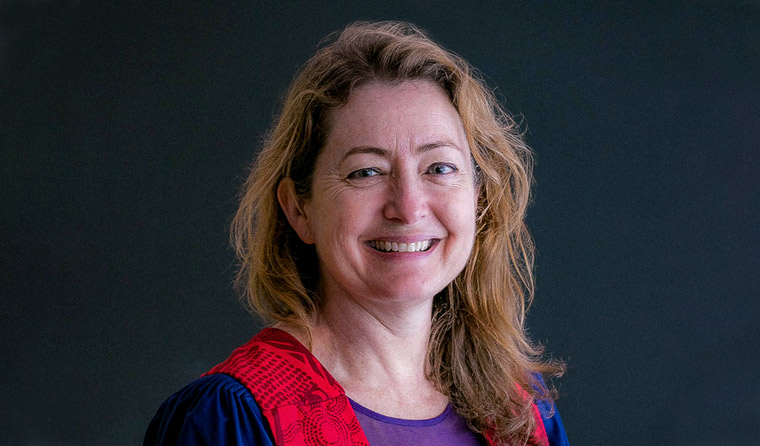News
Changes to NSW abortion bill raise further questions
Proposed legislation to decriminalise termination of pregnancy has passed the New South Wales lower house, but some amendments may prove controversial.
 Debate over the bill saw protesters from both sides of the argument come out. (Image: Dean Lewins)
Debate over the bill saw protesters from both sides of the argument come out. (Image: Dean Lewins)
In particular, the NSW branch of the Australian Medical Association (AMA) has criticised the inclusion of an amendment requiring doctors to receive ‘informed consent’ before proceeding and accused some members of parliament of ‘unfounded fearmongering’.
The AMA also decried attempts to alter the bill’s wording surrounding conscientious objection and a failed push that would have required abortions after 22 weeks to be the subject of a review by a four-person panel.
The Reproductive Health Care Reform Bill 2019 was eventually passed with seven amendments in a conscience vote following two days of extended debate, with 59 members in favour and 31 opposed.
Professor Danielle Mazza, women’s health expert and Head of General Practice at Monash University, told newsGP that while she is pleased the bill passed convincingly, she believes many of the amendments are ‘unnecessary hurdles’ for women seeking to access the procedure during a vulnerable time in their life.
In particular, she describes the informed consent amendment as ‘ridiculous’, describing it is an attempt to regulate abortion in a different way to other medical procedures.
‘Anything that adds confusion or makes termination of pregnancy different, adds to stigma and puts in place small barriers for patients,’ she said.
‘Why should this be separate from any other procedure that doctors undertake?
‘[It] does not stand in line with the intent of the legislation, which is to put this within health rather than criminal law … this area needs to be like any other area of healthcare and dealt with in the same way.’

Professor Danielle Mazza believes many of the bill’s amendments are ‘unnecessary hurdles’ for women seeking to access the procedure during a vulnerable time in their life.
Professor Mazza also questions an amendment that would require doctors to assess whether it would be ‘beneficial’ to discuss counselling with the patient and provide options if they are interested.
‘It’s not the doctor’s decision. It’s the patient’s decision as to as to how they proceed and whether they would like to have counselling,’ she said.
‘It’s telling doctors how to do medicine, it’s unnecessary.
‘It’s another barrier, another way to make this procedure different from other health procedures and it is not helpful.’
RACGP NSW&ACT Chair Professor Charlotte Hespe also believes the amendment stipulating doctors obtain informed consent is unnecessary, but does not think it will prove to be a barrier.
‘I don’t understand why they put it in, because that’s what we do,’ she told newsGP.
‘But if it at least provided assurance to those who are against the bill and meant it went through, then it’s only ridiculous to those of us who know that’s what we do anyway.
‘With any termination of pregnancy we need to ensure that all our patients have an informed understanding of what it is that they are going to do.
‘We have modules, particularly around abortion, that train GPs to understand how to do that, because one of the big things we know is that women who have a termination on an emotive response – for example, “This is inconvenient, and I can’t deal with it” – are much more likely to have consequences down the line in terms of regret and anger.’
Professor Hespe also does not believe the notion of informed consent separates termination of pregnancy from other procedures.
‘My understanding is that there would be no patient who has a termination of pregnancy in New South Wales who doesn’t already have to sign a form of consent before they have a procedure,’ she said.
‘There is no operating theatre that allows any type of procedure without the patient signing a form. That’s good practice.
‘We need to make sure that the patient has understood that if there’s a complication they could, for example, potentially rupture the uterus or be rendered sterile as a result of it going absolutely wrong.
‘All of those considerations need to be explained to people, and they need to sign off before they have a termination.’

RACGP NSW&ACT Chair Professor Charlotte Hespe said amendments that require doctors have a certain level of expertise are appropriate.
An amendment of which Professor Hespe is supportive relates to the need for at least one of the two doctors required to approve a termination after 22 weeks to be a medical practitioner with relevant expertise, such as a GP with additional experience or qualifications in obstetrics, or a specialist gynaecologist or obstetrician.
‘If it’s after 22 weeks, I think that’s absolutely appropriate. By that stage there should have been a specialist obstetrician involved in their care anyway,’ she said.
‘There are all sorts of implications and potential complications related to termination of pregnancy in terms of bleeding, damaging the cervix, rupturing uteruses; you need to have someone who knows what they’re doing.
‘Those particular caveats are reasonable in terms of how we practice medicine, and what we would expect for the delivery of safety and quality care, particularly in the Australian setting.
‘I don’t want any doctor just undertaking this service who hasn’t got any extra expertise, but I wouldn’t want anybody doing that for a typical termination, either.’
However, Professor Mazza disagrees.
‘I don’t see the logic in the amendment at all. There’s nothing that a specialist obstetrician or gynaecologist would necessarily do differently to any other doctor assessing this kind of situation, and again, it puts up another barrier,’ she said.
‘Women who are seeking termination after 22 weeks are doing so for specific reasons. So either it’s because of an abnormality that’s been detected through mid-term screening or in another fashion, or potentially these are women with significant health or social issues.
‘In my experience, they have been women who’ve had significant psychiatric illness or significant drug and alcohol issues. Other cases I’ve commonly seen seeking late termination have been international students who are at risk of significant repercussions if they return home pregnant and haven’t been able to navigate the system in time because of their ignorance of the system.’
The bill will be considered by a Legislative Council inquiry next week and is expected to be voted on the following week.
abortion New South Wales termination women’s health
newsGP weekly poll
As a GP, do you use any resources or visit a healthcare professional to support your own mental health and wellbeing?